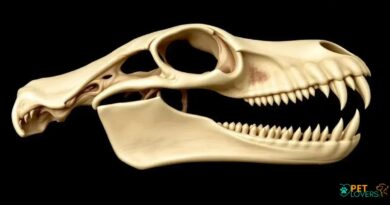What is Optimal
What is Optimal Nutrition for Dogs?
Optimal nutrition for dogs refers to providing a balanced diet that meets all the essential dietary requirements of a canine. This includes the right proportions of proteins, fats, carbohydrates, vitamins, and minerals. A diet that is optimal not only supports a dog’s physical health but also enhances their energy levels, coat condition, and overall well-being. Understanding what constitutes optimal nutrition is crucial for dog owners who want to ensure their pets live long, healthy lives.
Understanding Optimal Exercise for Dogs
Optimal exercise for dogs varies significantly depending on the breed, age, and health status of the dog. Regular physical activity is essential for maintaining a healthy weight, promoting cardiovascular health, and preventing behavioral issues. An optimal exercise routine includes a mix of aerobic activities, such as walking or running, and mental stimulation through games and training. Tailoring exercise to meet the specific needs of your dog is key to achieving optimal health.
Optimal Grooming Practices for Dogs
Grooming is an essential aspect of dog care that contributes to optimal health. Regular grooming helps prevent matting, reduces shedding, and allows for early detection of skin issues or parasites. Optimal grooming practices include brushing the coat, trimming nails, cleaning ears, and bathing as needed. The frequency and type of grooming required can vary by breed, so understanding your dog’s specific needs is vital for maintaining their hygiene and comfort.
Optimal Training Techniques for Dogs
Training is a fundamental part of responsible dog ownership and contributes to a dog’s overall well-being. Optimal training techniques involve positive reinforcement methods that encourage desired behaviors while discouraging unwanted ones. This approach not only strengthens the bond between the dog and owner but also enhances the dog’s confidence and social skills. Consistency, patience, and understanding are key components of effective training that lead to optimal results.
What is Optimal Health Monitoring for Dogs?
Optimal health monitoring for dogs involves regular veterinary check-ups, vaccinations, and preventive care. Keeping track of your dog’s health status through routine examinations helps identify potential health issues early on. Optimal health monitoring also includes being aware of changes in behavior, appetite, and physical condition. By staying proactive about your dog’s health, you can ensure they receive the necessary care to maintain their well-being.
Optimal Socialization for Dogs
Socialization is crucial for a dog’s development and helps them become well-adjusted pets. Optimal socialization involves exposing your dog to various environments, people, and other animals in a controlled manner. This process helps reduce fear and anxiety, promoting a confident and friendly demeanor. Early socialization is particularly important for puppies, as it lays the foundation for their future interactions and behaviors.
Optimal Living Environment for Dogs
Creating an optimal living environment for dogs is essential for their mental and physical health. This includes providing a safe, comfortable space with access to fresh water, proper shelter, and a stimulating environment. Dogs thrive in environments that offer opportunities for play, exploration, and rest. Ensuring that your home is dog-friendly and free from hazards contributes to an optimal quality of life for your furry friend.
What is Optimal Behavioral Management for Dogs?
Optimal behavioral management involves understanding and addressing a dog’s behavioral needs through appropriate training and environmental adjustments. Dogs may exhibit various behaviors based on their breed, age, and past experiences. By recognizing the underlying causes of certain behaviors, owners can implement strategies that promote positive behavior and reduce stress. This proactive approach leads to a harmonious relationship between the dog and its owner.
Optimal Aging Care for Senior Dogs
As dogs age, their care requirements change, necessitating a focus on optimal aging care. This includes adjusting their diet to accommodate slower metabolism, providing joint support, and ensuring regular veterinary visits. Senior dogs may also require modifications to their exercise routines to prevent injury while still keeping them active. Understanding the unique needs of aging dogs is essential for maintaining their quality of life and comfort.



